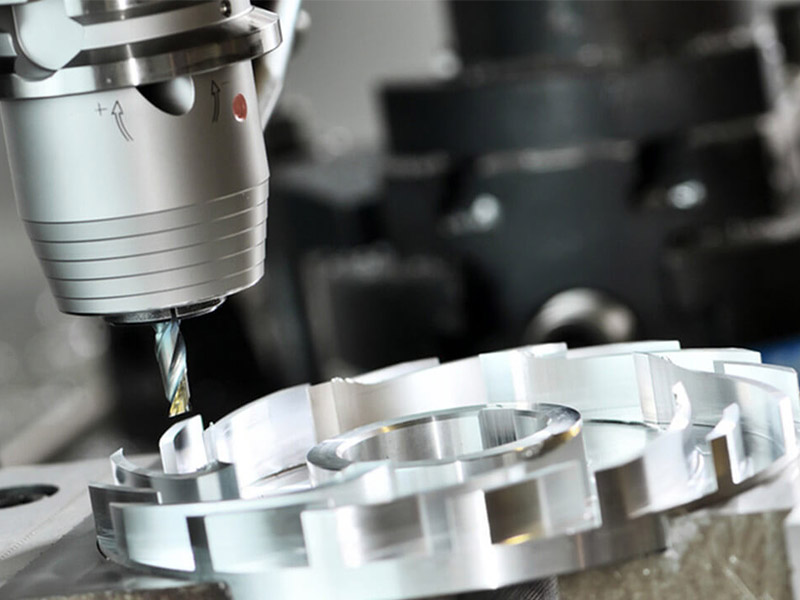CNC Machining Services: The Backbone of Modern Precision Manufacturing
CNC Machining Services: The Backbone of Modern Precision Manufacturing
Blog Article
CNC machining, also known as Computer Numerical Control machining, is now a fundamental element of modern manufacturing. It offers high precision, quality, and reliability that wasn't possible with conventional techniques. By automating the control of machine tools through computers, CNC machine tools allow manufacturers to produce complex parts with astonishing precision. From the automotive and aerospace industries to electronic and healthcare, CNC machining is utilized across many fields to design intricate parts that require precision. The incorporation of computers in the machining process has transformed the method by which products are developed and produced, setting new standards in quality as well as efficiency.
One of the biggest benefits of CNC machine is the ability to create complex and intricate parts with extreme accuracy. In contrast to manual machining, in which precision is largely dependent on the skills of the operator CNC machines execute programmed instructions precisely. The digital directions, which are typically developed using CAD (Computer-Aided Design) software, permit producers to make parts with accuracy as close as few microns. The level of accuracy is crucial in fields such as aerospace and medical device manufacturing, in which even one tiny deviation could compromise the performance or safety of the product. With CNC machined parts, producers are able to guarantee that every component has the correct specifications and reduces the risk of defects and the necessity for expensive repairs.
One of the major advantages of CNC cutting is its flexibility to work with a vast variety of different materials. Whether manufacturers are dealing with tough metals like steel or titanium or softer materials like plastic and wood, CNC machines can be equipped to tackle a range of work-related tasks, including shaping and cutting. This flexibility can make CNC manufacturing suitable for pieces across a variety of fields, from medical devices and aerospace components, to automotive and consumer electronics. Being able to process intricate geometries and high precision has also made CNC machines the most popular method to create intricate pieces which would be challenging or even impossible to create using conventional techniques.
The CNC machining brand also has excellent reliability, which means that every product is exactly as the original design. This is essential in the industries that demand large-scale production of standard components including automotive parts and consumer electronics. As CNC machines operate according to programed instructions, they're able to make hundreds or even thousands parts with minimal variations in terms of quality. This consistency not only improves the dependability of final products, but it also minimizes production waste since less parts have to be returned due to imperfections. In addition, as the digital designs used in CNC machines can easily be altered or upgraded, companies can swiftly adjust to any changes in specifications or the demands of their customers, without the need for costly refalibration or retooling. To receive extra information please check out https://www.premiumparts.com/services/cnc-machining
CNC machining is also known for its flexibility in terms of the kinds of materials it's able to handle. From the metals such as aluminum, steel, and titanium to plastics wood, even carbon fiber, CNC machines utilize a broad range of materials to produce parts for diverse applications. This flexibility makes CNC machining suitable for a wide range of sectors which have their own unique needs for the materials. For example, the medical industry often requires parts made with biocompatible material like titanium. The automotive industry makes use of durable metals like steel for engine parts. Regardless of the material, CNC machines can deliver precise cuts and consistent result, and ensure that the finished product is in line with the requirements for performance and longevity specifications.
The impact on the environment on the environment CNC operations is an additional aspect that is worth thinking about. Though traditional manufacturing techniques typically result in a substantial amount of waste, CNC machines are recognized for their material efficiency. Through precise cutting and shaping material, CNC machining minimizes waste and reduces both the cost of materials and environmental footprint. Additionally, the automation of CNC machines can reduce the energy usage in comparison to manual machining. Modern CNC machines have been designed with sustainability in mind, making use of energy-efficient systems and motors to reduce their carbon footprint. This allows CNC manufacturing an environmentally-friendly choice for companies looking to reduce waste and conserve resources.